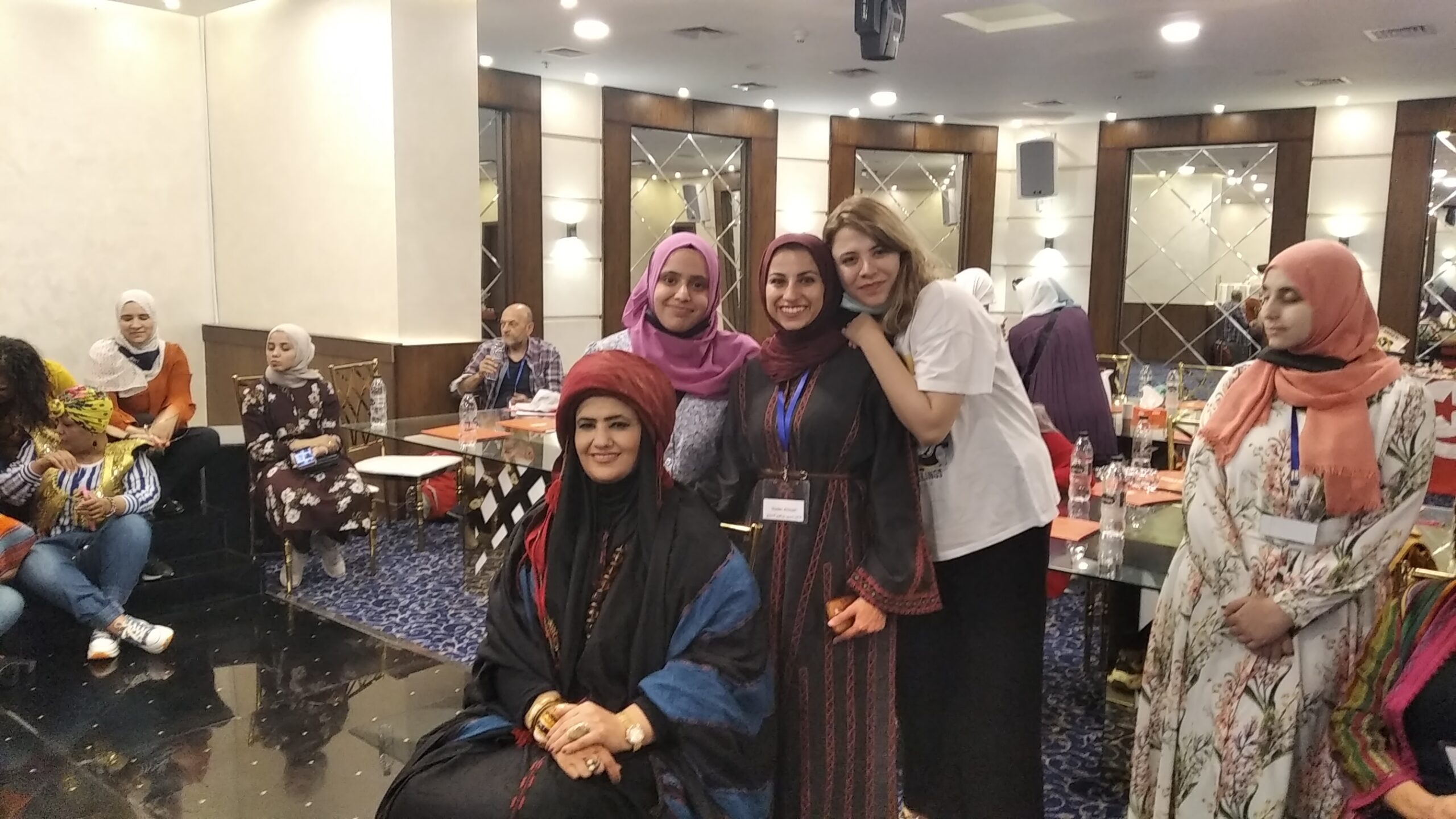The Invisible Forewomen Conference full report by the organisers of the conference Uri Mena
The Invisible Forewomen Conference was held from July 29-31, 2021 in Amman, Jordan. The conference was organized in a hybrid style, with both an in-person and virtual audience. It brought together about 50 people in-person and 20 virtual attendees via Zoom.
The conference was part of the Invisible ForeWomen project led by Udhetim i Lire – Liberi di Viaggiare (UiL-LdV), Albania, in cooperation with the United Religions Initiative in the Middle East & North Africa (URI MENA), TEKMED, Turkey, Have A Dream, Egypt and DRPDNM, Slovenia. It was generously funded by Anna Lindh Foundation and co-funded by the European Union.
The aim of the conference was to raise awareness about young marginalized women’s needs for sociocultural and economic empowerment. Speakers provided innovative ideas about how to boost their participation in social, economic and public life. Participants discussed how to combate the contextual factors that increase young women’s susceptibility to marginalization, violence and discrimination. They suggested many strategies to overcome obstacles that prevent young women with less opprtunities from fully contributing to sustainable development. Conference participants were a mix of leaders of women-led organizations, experts in relevant subjects, and marginalized women. They were from 13 European and South Mediterranean countries. Because young marginalized women’s struggles and rights so often go unnoticed, the conference provided them with the space to tell their stories and addressed existing efforts that can provide them with the tools to become leaders and entrepreneurs in various fields. We invited Anna Lindh Foundation members from across Europe and the South Mediterranean to attend the conference.
On the third day, participants made two field visits to women-led/women-focused social enterprises. We had the firsthand experience of seeing how young marginalized women are engaged in many different actions that improve their quality of life. We first visited Al-Nuzha Community Development Centre of the Jordanian Hashemite Fund for Human Development (JOHUD). We learnt about their women empowerment programs. We met dozens of marginalized women who showed their different handmade products.
We then visited Sanabel Al-Khair Society for Social Development in the Hashemi Shamali area where we learned about the organization’s efforts to empower young women with fewer opportunities in local communities. The association runs many programs including textile design, takaful fund (women’s mutual fund), and the “Makani” (My Space) initiative. Makani is a UNICEF-funded program that aims to reach all children, including refugees, who are out of the formal education system through a holistic program that provides informal schooling, psychosocial support, and life skills.
We had the privilege of attending one of the Takaful fund sessions, exploring how a group of young women can obtain interest-free loans from the mutual fund, which is supported by all their contributions.
Afterwards, we had our lunch at the association (prepared by the marginalized women) and headed back to our hotel for the exposition of handmade products at the hotel. Twenty five marginalized women were able to showcase their products on 9 tables. Over 60 people attended the Expo, and some women’s products completely sold out within an hour.
After the Expo, we visited As-Salt – a city that has recently been added to the UNESCO World Heritage List as the Place of Tolerance and Urban Hospitality. The city, which is constructed with local yellow limestone, includes approximately 650 significant historic buildings that exhibit a blend of European Art Nouveau and Neo-Colonial styles combined with local traditions. The city’s non-segregated development symbolizes the tolerance between Muslims and Christians, who have developed traditions of hospitality evidenced in Madafas (guest houses, known as Dawaween) and the social welfare system known as Takaful Ijtimai’. These tangible and intangible aspects emerged through a combination of rural traditions and bourgeois merchants’ practices during the Golden Age of As-Salt’s development between the 1860s to the 1920s.

